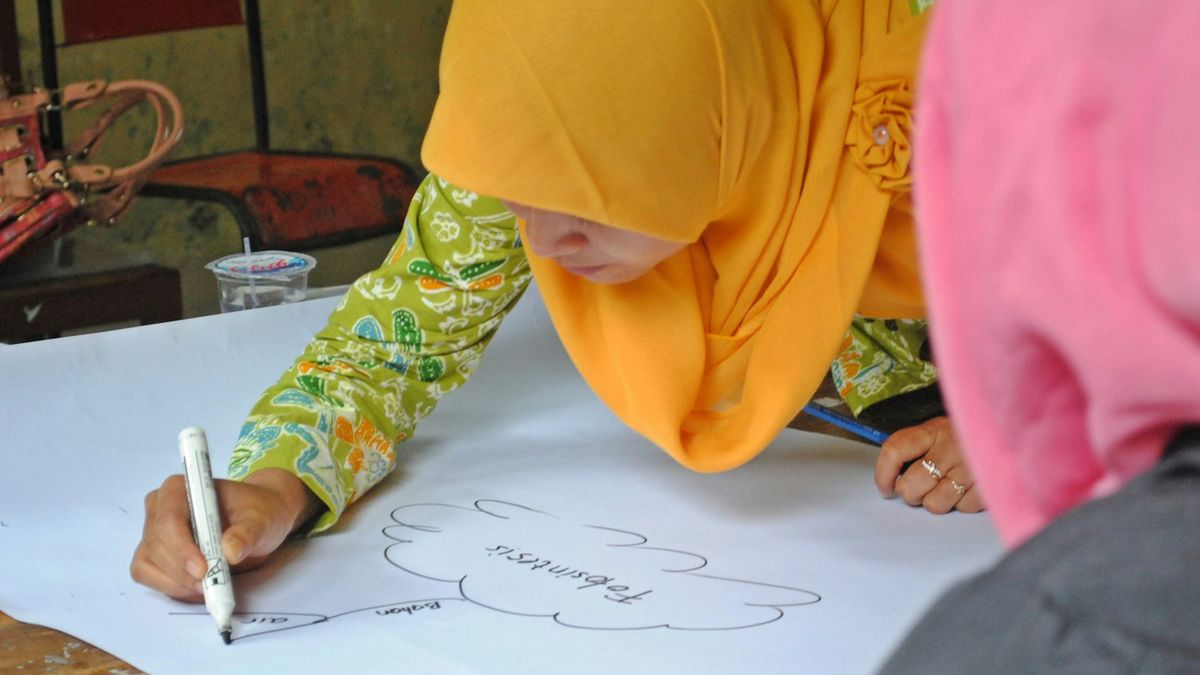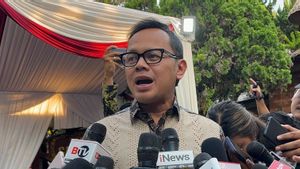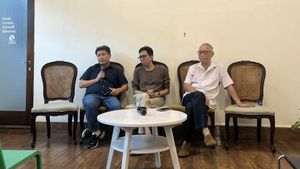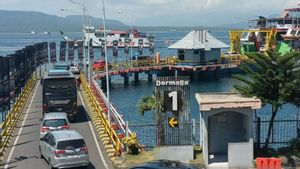JAKARTA - Member of the House of Representatives, dr. Gamal is ready to fight for issues of community welfare, including education. He highlighted that there are still many educational problems in Indonesia, from the education system to the welfare of teachers.
Teacher welfare is one of Gamal's concerns considering that the quality of teachers is part of educational services. Even so, the welfare of teachers as educators in Indonesia is still far from expectations, especially honorary teachers, whose numbers are very large and spread in the country.
With very small income, many honorary teachers cannot meet their living needs. Gamal emphasized the importance of ensuring the welfare of teachers to support the quality of education services because the welfare of less teachers will have a negative impact on the motivation and quality of teaching.
"If the welfare of teachers is still minimal, how can they teach calmly when debt burdens and household needs have not been met," said Gamal, Friday, October 18.
Gamal then compared the income of teachers in Indonesia with countries in ASEAN. If you use the Purchasing Power Parity comparison, the lowest average salary for teachers in Indonesia is at the lowest position with a figure of IDR 2.4 million. Meanwhile, the average salary for teachers in Malaysia is Ro 5.54 million, the Philippines is IDR 6.97 million, Thailand is IDR 9.52 million, and Singapore is IDR 11.93 million.
SEE ALSO:
Even when compared to the salaries of OECD countries (Organization for Economic Co-operation and Development), elementary school teachers in Australia have an income of IDR 620-883 million per year, junior high school teachers in the Netherlands have an income of IDR 606 million to 1.06 billion per year, and high school teachers' salaries in France have an income of IDR 454-550 million per year.
Gamal also mentioned the results of the Institute for Democracy and Potential Studies (IDEAS) research institute in May 2024 which stated that there were 42% of teachers and 74% of honorary teachers had income below IDR 2 million, and 13% of teachers and 20.5% of honorary teachers had income below IDR 500 thousand.
In the same report mentioned, 89% of teachers in Indonesia feel that their income is mediocre or less to meet their daily needs. In addition, 55.8% of teachers are also known to have side jobs, as well as 79.8% of teachers have debts. No wonder many people from the teaching profession are entangled in online loans (Pinjol).
"We were also surprised by NoLimit's research which said 42% of people who were caught in illegal loans were teachers," said Gamal.
The data submitted by Gamal is relevant to the case at the end of 2023 where there was a sad story of an elementary school teacher with the initials WE (44) committing suicide with his family in Malang, East Java, due to debt reaching tens of millions of rupiah.
"Imagine whether they (guru) go to school to teach at the same time there are debt responsibilities that must be paid and home needs that have not been met. How can they teach in peace and full concentration?" explained Gamal.
Gamal appreciated the commitment of teachers to educate the nation's children. Despite getting a small salary, the survey results show that the majority of teachers still want to continue teaching until retirement.
"But the great 93.5% of teachers in Indonesia are committed to continuing teaching once they retire. This is what we need to appreciate together," said Gamal.
In addition to teacher welfare, Gamal also highlighted the quality of Indonesian human resources related to education. This is a record of how education in Indonesia is included in the critical category.
One of the indicators, presented by Gamal, can be seen from the low results of Indonesia's achievements in the PISA (Program for International Student Assessment) program in 2022. Indonesia is ranked 69 out of 81 countries with a reading, math, and science score that is far below the set target.
According to Gamal, the PISA results are the lowest PISA results in Indonesia's history following the PISA initiated by the OECD.
"Our PISA value achievement lags far behind the average OECD and ASEAN countries. The score reads 356 well below the target of RPJMN 392. The mathematical score is 366 far below the target of RPJMN 392. The science score is 383 far below the target of RPJMN 402," explained the legislator from the East Java V electoral district.
Furthermore, Gamal highlighted the literacy crisis in Indonesia. Based on UNESCO data, Indonesia's interest in reading is in an alarming category because of the 1,000 Indonesians, only 1 person is diligent in reading. CCSU's World's Most Literate Nation research also stated that Indonesia was ranked 60th out of 61 countries for reading interest.
"Our education output is not yet optimal as measured by various educational assessment results," he said.
Indonesia also experienced a numerical crisis. According to Gamal, various assessments show stagnation or slow progress on students' numerical abilities in Indonesia.
"The results of the IFLS test show a low probability of school-age students in mastering basic calculation materials. Then the increase in education level does not significantly increase literacy skills," said Gamal.
"For example, in the IFLS test, class 1 children get a score of 26.5% and grade 12 children get a score of 38.7%. So children in grades 1 to 12 during 12 years study their numerical ability to increase by only about 12 percent," he added.
Gamal assessed that there needs to be an evaluation of the education system in Indonesia. Because from this data, it can be concluded that the addition of education levels does not significantly increase the numeracy capacity of children.
"So, even though students go up in class, increasing students' abilities between level one and next level does not have a significant increase. Therefore, we need to prioritize literacy and numeracy skills as a learning orientation," he said.
The English, Chinese, Japanese, Arabic, and French versions are automatically generated by the AI. So there may still be inaccuracies in translating, please always see Indonesian as our main language. (system supported by DigitalSiber.id)

















